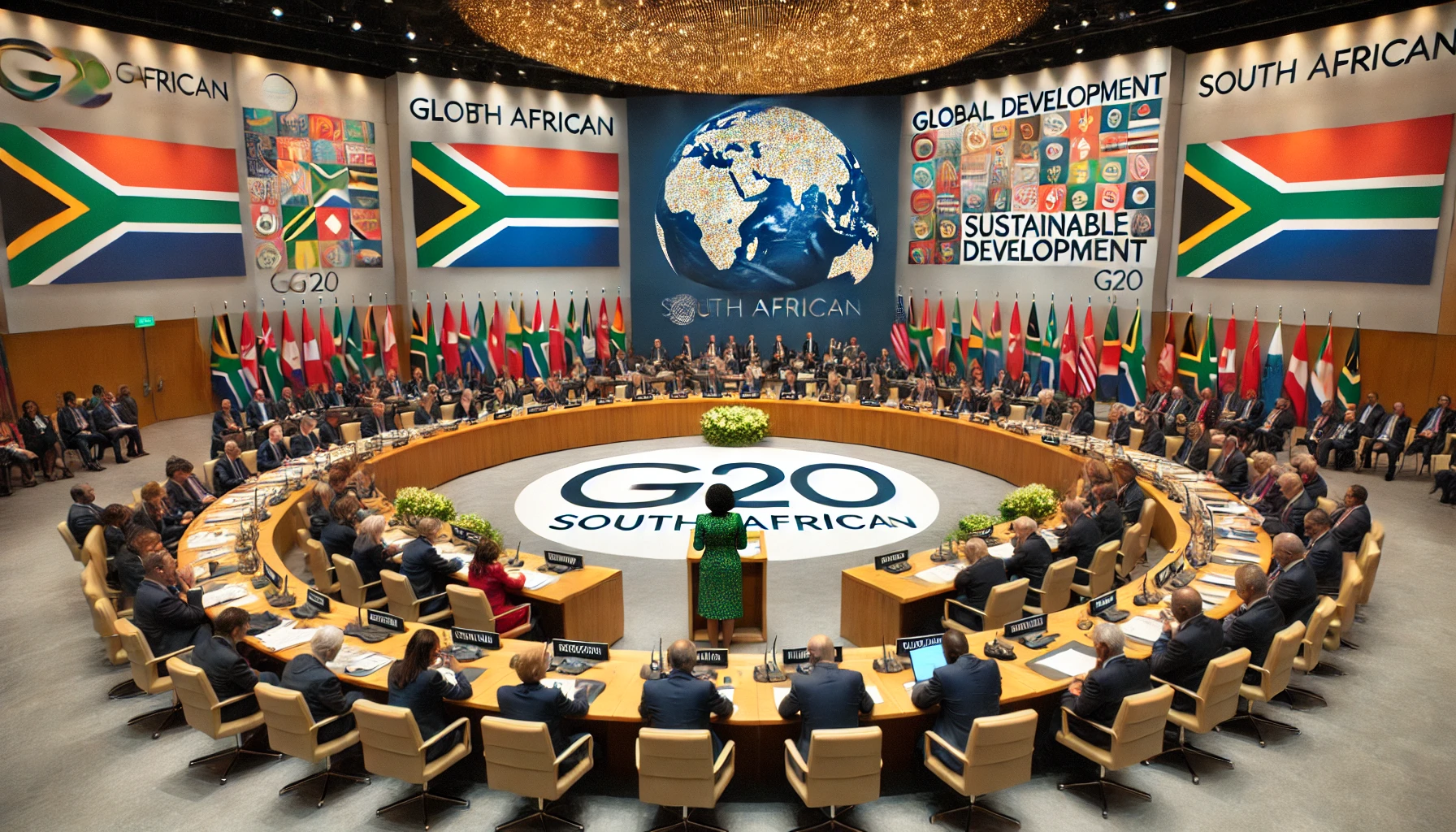G20 Finance and Central Bank Governors’ Meeting Calls for Strengthened Global Cooperation to Address Economic Risks
According to the Chairman’s Summary, G20 members recognized the importance of an evidence-based, comprehensive assessment of risks to economic growth and inflation.

- Country:
- South Africa
The inaugural Finance and Central Bank Governors’ Meeting under South Africa’s G20 Presidency has underscored the necessity of multilateral cooperation in mitigating global economic risks. The meeting, held at the Cape Town International Convention Centre (CTICC) on February 26-27, provided a platform for discussions on economic stability, inflation control, financial sustainability, and climate resilience.
Emphasis on Global Economic Cooperation
According to the Chairman’s Summary, G20 members recognized the importance of an evidence-based, comprehensive assessment of risks to economic growth and inflation. They reaffirmed the need for macroeconomic policy discussions and cooperation while considering country-specific circumstances.
Participants stressed the significance of multilateral cooperation in addressing both existing and emerging risks, maintaining financial stability, and fostering strong, sustainable, balanced, and inclusive growth and job creation.
Global Economic Developments and Risks
While acknowledging subdued global economic growth, the meeting noted that several regions have demonstrated resilience. However, divergent growth patterns persist across economies. Inflation has declined due to well-calibrated monetary policies and the easing of supply shocks, although progress varies across nations.
The meeting identified multiple downside risks that could hinder economic recovery, including:
- Ongoing conflicts and geopolitical tensions
- Economic fragmentation and rising protectionism
- Disruptions to global supply chains
- Elevated public and private debt levels
- Persistent inflationary pressures
- Climate change and extreme weather events
These risks pose challenges to achieving strong and balanced economic growth, prompting calls for strategic international collaboration.
Commitment to Sustainable Finance
The finance track members reaffirmed the G20’s commitment to implementing the Sustainable Finance Roadmap and welcomed initiatives to enhance climate financing. Discussions focused on developing high-level voluntary recommendations for integrating adaptation and resilience considerations into financial decision-making.
Key takeaways included:
- Strengthening insurance mechanisms, including reinsurance, to mitigate the financial impact of natural disasters.
- Advancing practical recommendations to bridge natural catastrophe insurance protection gaps based on national priorities.
- Promoting coherence among national development finance institutions, multilateral development banks (MDBs), and private financial institutions to scale up climate investments.
The meeting highlighted the urgency of mobilizing resources to address climate risks, particularly for developing nations. Expanding co-financing mechanisms was identified as crucial for risk-sharing in climate-related investments.
Presidential Address: A Call for Urgent Action
President Cyril Ramaphosa addressed the gathering on February 27, emphasizing the G20’s responsibility in tackling global economic challenges such as slow and uneven growth, rising debt burdens, persistent poverty, and the existential threat of climate change.
“We are not moving quickly enough or boldly enough to address these global challenges. We must collectively target a step-change in our efforts to improve the lives of all our people and protect future generations,” President Ramaphosa stated.
His address reinforced the necessity for G20 countries to collaborate in implementing bold and effective policies that drive equitable economic growth and sustainability.
The South African G20 Presidency’s first Finance and Central Bank Governors’ Meeting set the stage for continued discussions on global economic resilience, financial stability, and climate action. The outcomes of this meeting will shape future G20 engagements, aiming to build a more inclusive and sustainable global economy.
- READ MORE ON:
- Cape Town International Convention Centre










